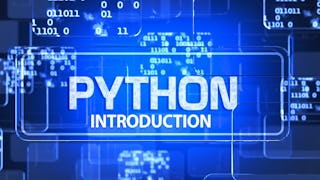Over-utilization of market and accounting data over the last few decades has led to portfolio crowding, mediocre performance and systemic risks, incentivizing financial institutions which are looking for an edge to quickly adopt alternative data as a substitute to traditional data. This course introduces the core concepts around alternative data, the most recent research in this area, as well as practical portfolio examples and actual applications. The approach of this course is somewhat unique because while the theory covered is still a main component, practical lab sessions and examples of working with alternative datasets are also key. This course is fo you if you are aiming at carreers prospects as a data scientist in financial markets, are looking to enhance your analytics skillsets to the financial markets, or if you are interested in cutting-edge technology and research as they apply to big data. The required background is: Python programming, Investment theory , and Statistics. This course will enable you to learn new data and research techniques applied to the financial markets while strengthening data science and python skills.

Gain next-level skills with Coursera Plus for $199 (regularly $399). Save now.

Python and Machine-Learning for Asset Management with Alternative Data Sets
This course is part of Investment Management with Python and Machine Learning Specialization


Instructors: Gideon OZIK
16,201 already enrolled
Included with
(236 reviews)
Recommended experience
What you'll learn
Learn what alternative data is and how it is used in financial market applications.
Become immersed in current academic and practitioner state-of-the-art research pertaining to alternative data applications.
Perform data analysis of real-world alternative datasets using Python.
Gain an understanding and hands-on experience in data analytics, visualization and quantitative modeling applied to alternative data in finance
Skills you'll gain
Details to know

Add to your LinkedIn profile
4 assignments
See how employees at top companies are mastering in-demand skills

Build your subject-matter expertise
- Learn new concepts from industry experts
- Gain a foundational understanding of a subject or tool
- Develop job-relevant skills with hands-on projects
- Earn a shareable career certificate

There are 4 modules in this course
The consumption module introduces students to the basics of consumption-based alternative data. By aggregating online and offline consumer purchase activity and behavioral datasets including geolocation data (e.g., cell locations, satellite imagery etc.), transaction data (e.g., credit card transaction logs and point of sale data), as well as consumer interaction with brands and products on social media, researchers can learn about company performance ahead of official company earning announcements. Such information may be extremely useful and can provide investment and risk management advantages. This module reviews the theoretical aspects of various consumption datasets, and provides practical demonstrations of relevant data analytics.
What's included
10 videos5 readings1 assignment1 discussion prompt1 ungraded lab
Module 2 is an introduction to text mining as well as a demonstration of how to get from data retrieval (web scraping) to financial market insights. Some of the classic text mining methodologies are covered such as vectorization of text (the bag of words approach), stop words for filtering, and term frequency-inverse document frequency (TF-IDF). Students will learn how text can be mathematically represented, and regularized/filtered to reduce noise. Measures of text-similarity will be covered in theoretical and practice sessions. Lab sessions go through examples of web scraping data, regularizing with the described techniques and finally, insights will be derived from the textual data.
What's included
8 videos2 readings1 assignment1 discussion prompt
Module 3 is a practical extension of the text mining lessons to 10-K and 13-F, two of the most commonly researched corporate filings. This type of data can be extremely daunting when used by individual analysts due to the sheer size of the documents, but module 3 describes the methodologies for quantitatively analyzing these documents with Python code. Both the 10-K and 13-F documents are worked through, and within the lab sessions it is demonstrated how one can automatically pull this kind of data as well as define metrics around them. We investigate implementations of research in this field around similarity of given companies 10-K statements over time as well as similarity between fund holdings from the 13-F in the lab.
What's included
8 videos6 readings1 assignment1 discussion prompt
The final module introduces both sentiment analysis in the context of textual data as well as network analysis in the context of connectivity of firms. Sentiment analysis is an avenue of potentially fruitful information that when done correctly can display what a general population might believe about a company (through for example social media) or even whether the company itself is positive or negative on future outlook (through analysis of tone in corporate filings). Network analysis, as shown in the research of course instructors and his colleagues, can be used to accurately capture how a financial network is oriented and what companies might perform well because of other firm’s mentioning them as a threat. The lab session of this module extends the corporate filings analysis to examine sentiment while also introducing a set of tweets which are then transformed into a network representation.
What's included
7 videos5 readings1 assignment1 discussion prompt
Earn a career certificate
Add this credential to your LinkedIn profile, resume, or CV. Share it on social media and in your performance review.
Instructors

Offered by
Explore more from Finance
 Status: Free Trial
Status: Free TrialEDHEC Business School
 Status: Free Trial
Status: Free TrialEDHEC Business School
 Status: Free Trial
Status: Free TrialEDHEC Business School
Why people choose Coursera for their career




Learner reviews
236 reviews
- 5 stars
60.75%
- 4 stars
27%
- 3 stars
8.01%
- 2 stars
2.95%
- 1 star
1.26%
Showing 3 of 236
Reviewed on Jan 2, 2021
Great lab sessions and very well explained theory. Delivers strong intuition to the student.
Reviewed on Nov 23, 2020
Great overview of how nontraditional data has been applied to finance. The programming aspect of it was very well-done, too
Reviewed on Dec 26, 2020
Interesting course and good worked examples in the included Labs.
Frequently asked questions
To access the course materials, assignments and to earn a Certificate, you will need to purchase the Certificate experience when you enroll in a course. You can try a Free Trial instead, or apply for Financial Aid. The course may offer 'Full Course, No Certificate' instead. This option lets you see all course materials, submit required assessments, and get a final grade. This also means that you will not be able to purchase a Certificate experience.
When you enroll in the course, you get access to all of the courses in the Specialization, and you earn a certificate when you complete the work. Your electronic Certificate will be added to your Accomplishments page - from there, you can print your Certificate or add it to your LinkedIn profile.
Yes. In select learning programs, you can apply for financial aid or a scholarship if you can’t afford the enrollment fee. If fin aid or scholarship is available for your learning program selection, you’ll find a link to apply on the description page.
More questions
Financial aid available,






